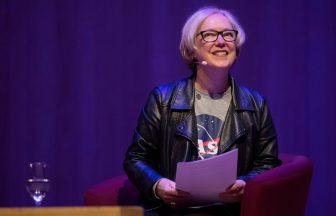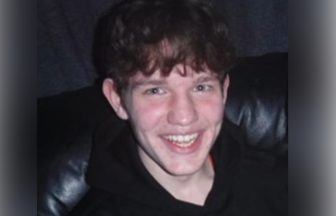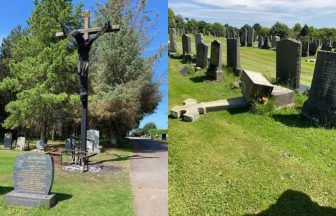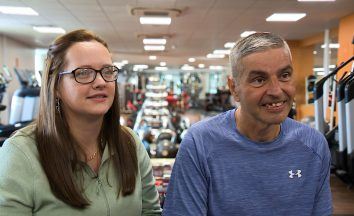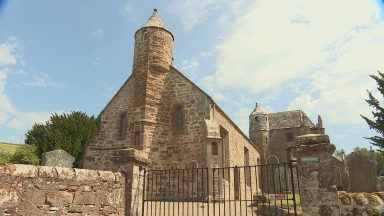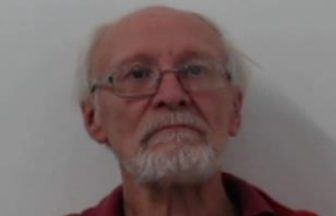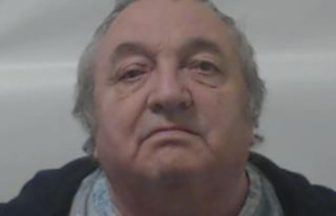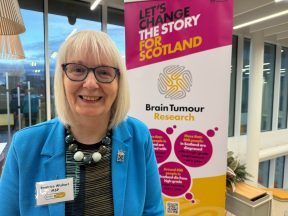More than 70,000 people are estimated to be living with early-onset Alzheimer’s disease in the UK.
BBC presenter Janice Forsyth revealed in a statement on Monday she is stepping down from her career after being diagnosed with the condition.
Before her diagnosis, the arts and culture presenter, 65, said she had hoped her symptoms were due to exhaustion and anxiety.
Alzheimer Scotland has said it can be difficult to diagnose younger people with the illness, as it is often mistaken for other causes, such as menopause, anxiety, or depression.
“It is courageous of Janice Forsyth to make her dementia diagnosis public”, Jennifer Hall, Alzheimer Scotland’s head of National Support Services, said.
“Doing so helps tackle the stigma that still persists in Scotland around dementia, which often makes it more difficult for people to reach out and ask for help early on.
“Janice described her early symptoms of Alzheimer’s disease as deep feelings of anxiety and difficulty in carrying out tasks such as navigation – which she had thought may have been a result of stress or exhaustion.
“While one of the most common and recognisable symptoms of dementia is memory loss, it is not the only symptom. The condition can be characterised by a range of other things such as difficulty with word finding, concentration, sensory and/or personality changes.
“People may also find it difficult to make decisions, follow multi-step instructions, recognise where they are or get lost more easily, and complete familiar tasks such as dressing and cooking.
“Getting an accurate diagnosis of dementia is crucial in order to access the right help and support, however this can often take longer for younger people because symptoms are often mistaken for other causes, for example, menopause, anxiety or depression.
“Dementia is more common in people aged over 65, but it can affect people in their 40s and 50s. When a person under 65 is diagnosed with dementia, this is often referred to as young onset dementia. Younger people with dementia are less likely to experience memory loss as one of their first symptoms.
“It was very powerful to read about Janice saying she’s ‘not done yet’, which resonates with us at Alzheimer Scotland. We see firsthand that with the right help and support in place, people can live well with dementia for many years.”
What is early-onset Alzheimer’s disease?
Alzheimer’s is the most common form of dementia. It affects memory, thinking, and behaviour and often progresses to the point where it affects daily activities and functions.
The condition most commonly affects older adults but can also affect people in their 30s or 40s.
When Alzheimer’s disease happens in someone younger than age 65, it’s known as early-onset (or younger-onset) Alzheimer’s disease.
What are the symptoms?
Dementia is often associated with memory problems, but the first symptoms of young onset dementia are not always memory-related, meaning people do not always recognise the early signs.
The symptoms of dementia differ from person to person, but more commonly, people with young onset dementia experience early changes in:
- behaviour and personality – becoming irritable or anxious, making irrational and out-of-character decisions or experiencing changes in mood
- language and communication – having difficulty finding words, slurring speech or noticing changes in handwriting
- movement and coordination – being clumsy, experiencing issues with balance and mobility
- social and life skills – struggling to complete tasks and meet deadlines, being unable to recall things or less willing to socialise or go out
- visual perception and special awareness – mis-reaching for objects in clear view, experiencing hallucinations or having difficulty judging distances
How do you get a diagnosis?
If someone is concerned about having symptoms of early-onset Alzheimer’s disease, it is important to book an appointment with a GP as soon as possible. It is recommended to keep a diary of the symptoms and bring a family member or friend to the appointment so they can share the changes they’ve noticed.
A timely diagnosis can help the person and their family understand what form of dementia they have, how their symptoms affect them, and what they can do to manage them.
There may be challenges along the way to receiving a diagnosis. A person may be reluctant to go to the doctor due to fear or be in denial that there is an issue. It could be explained that their symptoms may be due to another condition that could be treated, as this may encourage the person to see their GP.
Many conditions may mimic the signs of dementia, such as vitamin deficiency, depression and menopause in women. It’s often helpful to explain that a prompt assessment and diagnosis leads to the right treatment and support sooner.
How to access support
You can join the Young Dementia Network, hosted by Dementia UK. The Network is an online influencer community of people who are passionate about improving the lives of people affected by young-onset dementia.
It offers a range of resources to support people affected by the condition as well as clinicians.
Every person with dementia is impacted in different ways. If you are worried about dementia, Alzheimer Scotland’s 24-hour Freephone Dementia Helpline is here to offer information, signposting, and emotional support on 0808 808 3000.
Follow STV News on WhatsApp
Scan the QR code on your mobile device for all the latest news from around the country


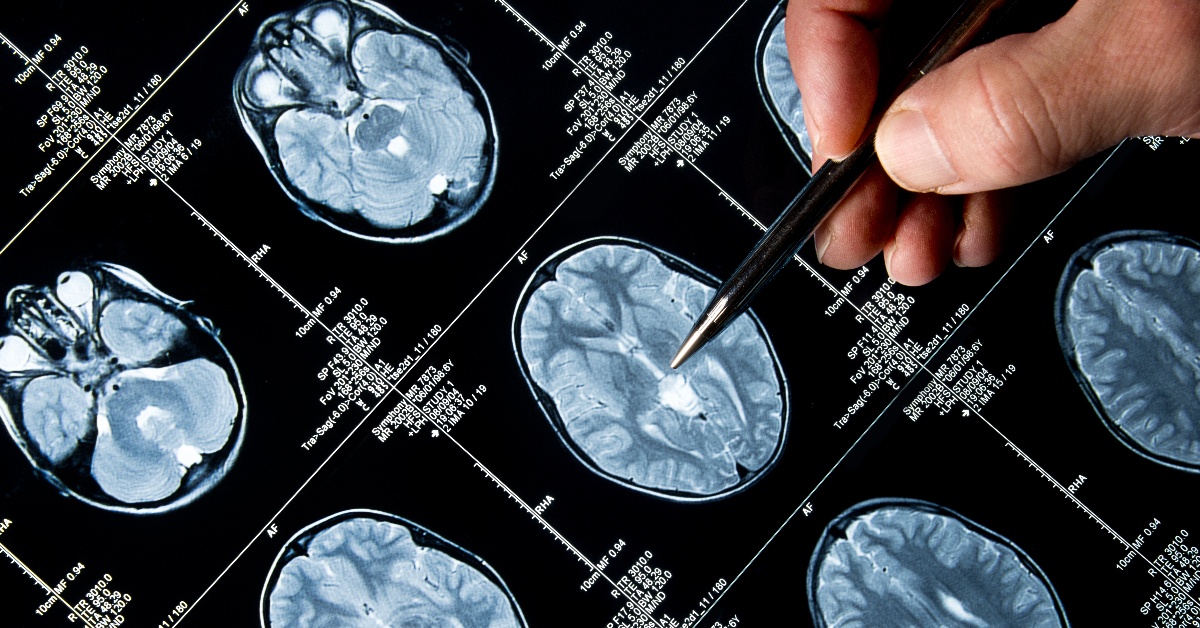 iStock
iStock